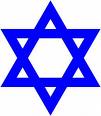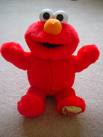We know how to greet someone on shabbos; the other person is two cement boxes away, about 4 feet, that makes you actually able to look like you are greeting the other person, (not screaming) and giving them a chance to say good shabbos back before passing you. Then there are the times that things go wrong, or awkward occurrences, that sprout from this common occurrence.
Lets say you are walking, and you notice the person coming towards you. In fact they notice you too. You cant just look away, that seems weird. You cant look at the person the whole time till they pass you, that's also weird. Some people will try the look down trick, or the "I am looking straight ahead passed you" look, which never really helps. So as you both are walking towards each other, it gives a weird feeling inside both of you, till you say good shabbos. Another thing you don't want to do, which I find annoying, is right before you pass the other person you cross the street, and in affect, nullifying theirs and your shabbos greeting requirement. Don't do that because I was just about to say it and you walk away, it creates an awkward feeling in me and you, probably, too.
Some times you just aren't sure if you say good shabbos or Shabbat shalom, for example if you think the person is Sephardic, maybe a shabbat shalom is necessary. Then it happens where you cant tell if the person is Sephardic, now you'll never know what to say, and you will always end up looking stupid.
Saying good shabbos to male/female if you are a female/male. This turns out to be a problem only in Brooklyn, because out of town everyone says good shabbos to everyone. If you do say a good shabbos, in Brooklyn, you will probably get a look of astonishment from the other person, which really means "how could you even have the nerve to say good shabbos to the opposite gender", and sometimes you get the invisible look, where the opposite gender pretends you don't even exist. Very rarely, in Brooklyn, will you ever get a good shabbos back.
Many times the people you are greeting will mumble something like "gishbs", which just means they really don't want to say good shabbos. You'll look back at them and wonder, "why couldn't they just say a normal one, am I not worthy enough for one?" Sometimes you will get a nod from people, which I think is better than a "gishbs". For some reason I have never heard anybody say "you too" to a good shabbos, I don't see why it wont work, are you not greeting the person back?
Another weird problem is, you are walking back from shul, for you its after shabbos, the people passing you are on their way to shul, they didn't finish shabbos, or the opposite way around. Do you say "good shabbos", or "gut vuch", you'll never know. On Yom tov it gets harder, what do you say; Gut yuntif, chag sameach, chag kosher v'sameach, Yom Tov (good day)? And on shabbos that falls out on yom tov it gets harder, do you say "good shabbos" first and then the yom tov greeting, or just one them?
Then there is the don't answerer's. These people brush right by you, they also give the "you don't exist" look. That isn't awkward, its just chutzpah.
If you ever pass a group of people: That even you're expert on shabbos greeting etiquette doesn't know what to do. In that case it will always leave you with is an awkward feeling.
Shabbos greetings are just so hard, no wonder people in Boro Park gave up on it.
Sunday, March 29, 2009
SHABBOS GREETING AWKWARDNESS
Thought of by Mikeinmidwood at 11:50 AM
Labels: Feeling, Jewish Practices, Jewish terms, Jews, New York, Observations, People, Shabbos, weird
Subscribe to:
Post Comments (Atom)







9 people gave their 2 cents:
Wow, and I thought I was the only one who noticed this.
The nod is nice. But sometimes you can't see it, so I ended up repeating my Gut Shabbos and looking kinda silly.
NMF 7
I, personally, never do the nod.
SHABBAT SHALOM:
As Lashon HaKodesh is a Holy language, it cannot be mixed together with any other language. To say, “Good Shabbes!” or “Good Shabbos!” is mixing English – a Latin-based language with Lashon HaKodesh (distorted).
The correct way to greet your friend on Shabbat is to say, “Shabbat Shalom!” And with Lashon HaKodesh, a person is giving his or her friend the greatest greeting of all - SHALOM.
1. Lashon HaKodesh is, “The Holy Language” or literally, “The Holy Tongue.” Lashon HaKodesh can therefore never be twisted into incorrect pronunciation.
The vowels and pronunciation have been so severely distorted by the Chassidim and communities of Eastern Europe, or those of ashkenazi origin - that some words have unfortunately become unrecognisable. The problem persists until today, and it must be corrected – speedily.
2. The vowels can never be mixed up - because Hashem doesn't like the sound of it.
There IS a correct way to pronounce every letter of the Aleph Bet. We are not allowed to change Hashem's Torah.
Drastically changing the pronunciation of any letter is changing Hashem's Torah - and this is something very grave.
Every letter is extremely holy. Each letter has a particular sound - like a particular note. When that sound or "note" is played incorrectly e.g. I play a piano with a hammer instead of my fingers - then great damage is caused.
Damage is caused Above, and correspondingly, below.
3. In Hebrew, the vowel "A" is "a" and "U" is "u". So “Amein” is “amein”. The vowels cannot ever be twisted into “OOmein.” This is not Hebrew.
4. Especially grave – is the stubborn and continual mispronunciation of Hashem’s NAME - for centuries - by the Chassidim. This is a blatant desecration of the 3rd Commandment, and a CHILLUL HASHEM – a public desecration of THE NAME of Hashem.
The NAME of HASHEM beginning ALEPH – DALED - NUN - - which is extremely Holy - is continually mispronounced every day. The “OH” sound cannot be changed into “EE”. The 2 cannot be mixed.
It is extremely urgent for all communities to correct this. It is very dangerous for the leaders: dayanim, rabbanim and rebbeim of communities to let this continue.
There is NO forgiveness for this aveirah.
The breaking of the THIRD Commandment is UNFORGIVABLE – “LO YENAKEH.”
“Lo Tissa et SHEM Hashem Elokecha lashav ki LO YENAKEH Hashem eit asher yissa et SHEMO lashav.” (Parsha of Yitro 20:7)
“You shall not take the NAME OF HASHEM, your G-d, in vain, for HASHEM WILL NOT ABSOLVE anyone who takes His NAME in vain.”
5. “ElokeiNU” means, “Our G-d.” But the Chassidim have twisted the vowels into, “ElokIYNEE”. What does “ElokIYNEE” mean? “NU” must be pronounced as “NU”. It does not turn into “NEE.”
a) “Yerushalayim” has been changed into, “YerISHU LAYIM”. What does “YERISHU LAYIM” mean? “They will INHERIT LAYIM?”
b) “Yom Tov” has been changed into, “YON TIF”. This is not Hebrew. Hashem gave us days which are “YOM TOV” – not YON TIF.
“YOM” ends with a “Mem” not a “Nun.”
“TOV” ends with a “BET” not a “Peh.”
These are glaring examples of how Lashon HaKodesh has been distorted into words that are unintelligible.
6. The “OH” sound cannot be changed into “OY” or “OIY”. “OY” is from Polish. Lashon HaKodesh cannot be mixed with Polish.
Some examples are below:
a) The word, “TORAH” has been distorted into the word, “TOIYROH”.
b) The name of “MOSHE Rabbeinu” has been distorted into the word, “MOIYSHER.” Who is MOISHER?
It is MOSHE Rabbeinu who gave us the TORAH.
Moshe did not give us the ‘TOIYROH’, or ‘TOYREH,’ and the Torah was not given to the Jewish People by a man called ‘MOIYSHER RABAIYNU.’
The name of the greatest of all the Prophets is ‘MOSHE’. It is about time the ‘rabbis’ and ‘dayanim’ got this right.
7. The last letter of the Hebrew Alphabet is a “TAFF”. But it has been changed into a “Saf”.
“Taff” is “TE.” It is not “Se.”
It is as if someone had a bad lisp (lithp) or had some teeth missing.
The Torah was not given in Munich or Hamburg. The Jewish People came out of EGYPT, which is in the Middle East.
On being called up to the TORAH (not TOIYreh), the correct way to say the Bracha (not ‘BRUCHA’ or ‘BROCHO’) is:
“………..BARUCH ATAH A-D-O-Shem NOTEN HATORAH.”
– Not “BOruch ATOY Hashem NOSSEIN HASSORAH.”
This must be corrected very urgently.
• The “AH” sound cannot be changed into an “OY/OIY” sound or an ‘AW’ sound. So when a beracha is made, a person should be saying:
“BAruch ATAH….” and NOT, “BOruch ATOY or BOruch ATAW……..”
8. The 8th letter of the Aleph Bet is “(G)HET”. It is guttural. It is not a “CHES.”
So a bridegroom is a (G)HATAN.
He is not a ‘CHATAN’ / ‘CHASSAN’ / ‘CHOSSON’/ ‘CHUSSON.’
9. The letter “AYIN” is guttural. The AYIN should not sound the same as the ALEPH.
The ashkenazi communities should start correcting their pronunciation.
10. With regard to some Sephardi communities, such as those from Iraq:
The 6th letter of the Aleph Bet is a VAV. It is not a "WAW", as they may have been taught. "Waw" is incorrect.
The sound "WE" or "WA" is actually the NAME of Hashem.
When the 2 YUD's of Hashem's NAME are written together, the sound is "WA". However this is never pronounced. This is the only time where there is the sound "WA" in the Aleph Bet.
Here are some examples:
1. David HaMelech is "DaVID HaMelech." He is not "DaWEED HaMelech."
2. A mitzvah is a "MitzVAH." It is not a " MISSWAH " or a “MUSSWA..”
3. Mitzvot are "MitzVOT." They are not " MISSWOT " or “MUSSWOT”.
4. Mitzvotav are "MitzVOTAV." They are not "MitzWOTTAW."
It is time that Lashon HaKodesh is pronounced correctly by all communities, both ashkenazi and sephardi.
It is especially important to make the changes to pronounce the NAME of Hashem correctly, and to begin to make a Kiddush HaSHEM in all our Tefillot.
Eliyahoo William Dwek
It seems like you really care about this, so I suggest that you hang up flyers everywhere warning everyone about the dangers of pronounciation and all the chilu hashem it might cause and if i pass you on the street and give you a good shabbos please scream at me for my horrible mistake at the top of your lungs, burn some garbage throw a rock everything you do will benfit soceity. Thank you so much.
Retired blog administrator
Post a Comment